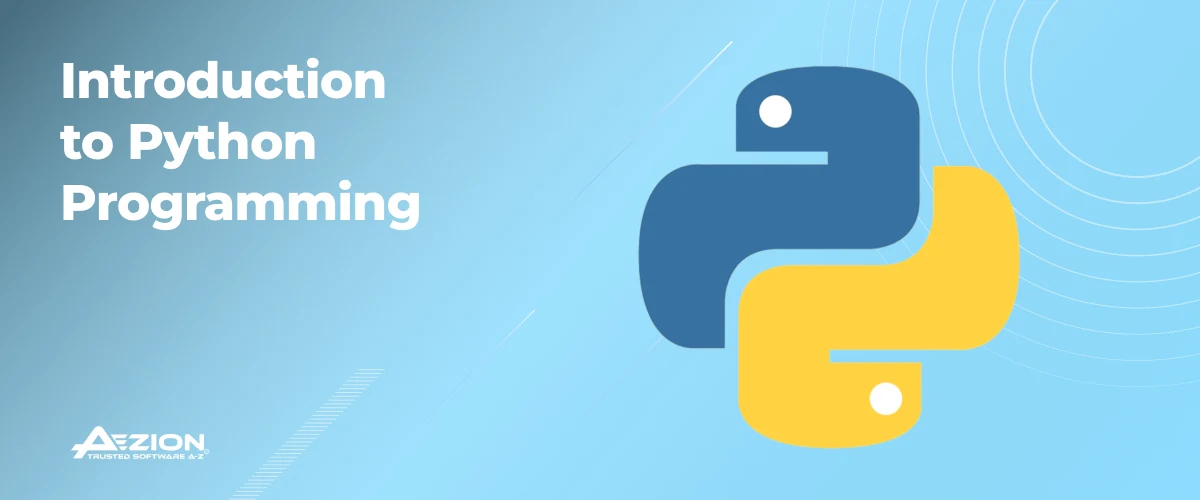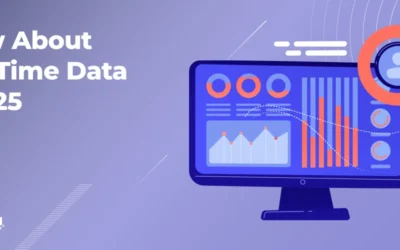Summary
The power of Python, its simplicity, and flexibility mean it is fast becoming the go-to language for companies looking to create software that can be expanded and managed efficiently and scalably. This blog examines how Custom Software Development teams use Python to create dynamic, future-proof software.
Introduction
Python is fast becoming one of the most popular programming languages in the world, and its use encompasses everything from websites to artificial intelligence. Python’s simplicity, vast libraries, and readability are well-suited to amateur coders and old-school engineers. Whether one’s building trivial automating scripts or full-on enterprise systems, the flexibility of Python enables dev teams to turn an idea into a product in mere seconds. For companies that want to innovate confidently, it is usually the foundation of practical custom software development projects.
Why Python Matters: Modern Software Development
In the quickly evolving digital landscapes, companies must design platforms that allow businesses to scale without excess expenses. Python is the optimal balance of capability and usability for agile development teams or enterprise applications. Its versatility supports AI, automation, IoT, and innovation, making it a future language.
What is Python?
Python is an advanced but simple computer language to learn. Its extensiveness is why so many developers use it; it has a simple syntax and is general in nature. Python is a multi-paradigm programming language because it employs both object-oriented and functional programming. It is mostly used for developing web applications, automation, artificial intelligence, and data science.
Because of its flexible nature, Python is generous enough to fit various project requirements. Through Python development services, specific solutions are readily adaptable for business entities interested in simplifying their development process, whether web application development or business process automation.
Key Features and Advantages of Python
Now, let’s look at a few of Python’s key features and benefits for supporting scalable software development and engineering.
- Multi-paradigm support—Python is a multi-paradigm language that allows writing in several different styles. It can be written in procedural, object-oriented, functional, or imperative code styles.
- Community—Python is an open-source technology supported by a large community for sustaining usage, making it easily consumable by organizations. Additionally, Python has systems that sustain and use it for users.
- Cross-Platform—Python Applications can be run on almost all platforms, such as Windows, Mac, and Linux, so it is the best programming language for creating cross-platform applications.
- Frameworks & Libraries—Python has Data science, machine learning, web development, and other capabilities. It also uses external libraries and platforms like NumPy, Pandas, TensorFlow, Django, and Flask.
Object-Oriented Programming in Python
Python is an Object-Oriented Programming Language. Object-oriented programmers design programs based on the core principles of OOP, Abstraction, Encapsulation, Polymorphism, Inheritance, etc. The foundation of Object-Oriented Programming is the Class. The Class is an abstraction of an object and provides the means to programmatically create, modify, and manipulate an object.
A Python program consists of classes representing key elements and their behaviors within a system.
Abstraction
Abstraction is the concept of object-oriented programming that digital engineers use to hide complex implementation details and show only an object’s or process’s essential features. This concept helps shift the focus to what an object does rather than how it does it.
In Python, abstraction is often implemented using abstract classes and interfaces. These allow software development companies to define methods that must be implemented by any subclass, without providing the full implementation in the base class.
Encapsulation
Encapsulation allows one to hide the internal details or implementation of one object from another object (s). This protects against accidental or direct access and modifications to the data. Python relies on encapsulation and other conventions to manage access to and use class variables or methods. One can restrict access to variables/methods with public, private, and protected. A variable or method that is prefixed with a double underscore “__” is treated as private in Python.
Polymorphism
Polymorphism is the term for ‘many shapes’. It is an OOP approach that permits one to define multiple shapes for a standard interface. Python’s execution of polymorphism is very similar to that of other OOP languages such as C++, Java, C#, etc. Polymorphic operations in Python are achieved through method overloading and overriding.
Defining a class
A class is defined using the keyword class. Here’s an example of a student class – consisting of the constructor __init__ – a specific method invoked as part of the object creation.
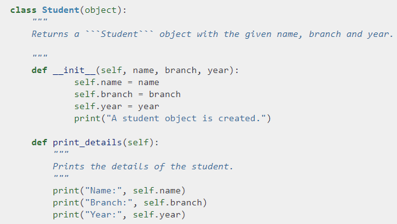
The code snippets above and below are reused from Reference: Python Class –
https://pymbook.readthedocs.io/en/latest/classes.html
Notice how the methods are defined using the keyword def. The ‘print_details’ method also takes ‘self’ as a parameter and prints the student’s name, branch, and year.
Inheritance
Inheritance is a core object-oriented concept in the Python programming language. It allows one to reuse or extend the functionality or features of one or more ” inherited ” classes in a new class. The concept of inheritance in Python is similar to other high-level programming languages, such as C#, Java, etc.
Let’s define a Person class by using a method to get the person’s details.
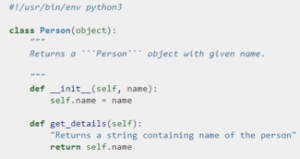
Now, let us revise the “Student” class to inherit from “Person” so it can get all the features of Person.
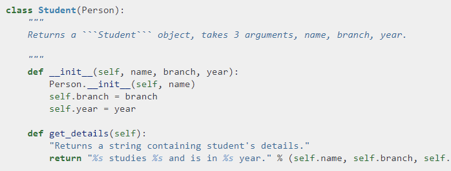
Once we inherit from the person, the student gets the behavior “get_details”. Notice, however, that the revised Student class overrides the behavior of “get_details” and adds its functionality.
Note – It’s up to the implementor to decide whether to override a method
Real-World Examples Using OOP in Python
OOP is used extensively in developing:
- CRM applications where classes represent Customers, Contacts, and Sales information.
- E-commerce sites employ classes to handle products, orders, and payments.
- Game development to handle GameObjects, Characters, and Levels.
- Web applications, where OOP can guide the composition of reusable pieces and views.
Practical Use Cases of Python
Python is versatile enough to be applied in numerous practical, real-world use cases, especially in business-critical systems. In custom software development, Python finds extensive application in:
- Web Development: Custom app developers use web frameworks such as Django and Flask to develop applications using Python, which simplifies development.
- Machine Learning and Data Science: Many libraries exist for solution development for data science and ML, such as Pandas, NumPy, and TensorFlow, which provide means for predictive modeling and data analysis.
- Enterprise solutions: Enterprise application developers use the Python programming language to develop enterprise resource planning (ERP) and customer relationship management (CRM) solutions.
- Automation: Developers can use scripting to support automation solutions and automate repetitive tasks using Python.
Why Choose Python for Custom Software Development?
Selecting Python for your software project isn’t simply a matter of popularity, it’s a matter of strategic advantage.
- Quick Development: Python’s syntax is simple and readable, enabling teams to develop features rapidly and lower development cycles.
- Enriched Ecosystem: There are thousands of third-party libraries available, and developers need not reinvent the wheel for tasks such as user authentication, payment gateways, or data analysis.
- Scalability: Python applications can scale effortlessly when developed with the appropriate architectural patterns (e.g., microservices using FastAPI, Celery for task queues).
- Seamless Integration: Python can be connected to C/C++, Java, .NET, and more making it an excellent choice for mixed environments.
- Community and Longevity: With millions of programmers across the globe, great documentation, and years of established success, Python is a sound long-term bet for corporations.
Conclusion
As seen in this blog, Python is a compelling language. Developers prefer it because of its simple and flexible features. This is an excellent language for developing custom software solutions. Essentially, any custom software development company is either developing web applications, building automated business workflows, or integrating machine learning models. Python provides tools and libraries that allow development companies to help bring ideas from our clients to fruition.
Also, using Python development services allows you to build scalable, maintainable, and future-proof software. At Aezion, we provide Python-based custom solutions developed to address your company’s needs. Contact our digital engineering team to learn how custom Python solutions can help transform your business.
FAQs
In what ways does Python facilitate Object-Oriented Programming (OOP)?
Python employs OOP paradigms, such as abstraction, encapsulation, inheritance, and polymorphism. OOP allows developers to create reusable code that provides more organized applications.
What makes Python so great for custom software development?
Python is the best language for custom software development because of its readability, available libraries, and being a multi-paradigm language makes it easier overall to build scalable applications and create sustainable applications in a bounded time frame for a developer’s future.
Is Python used for machine learning and data science?
Yes, Python is a favorite language for machine learning and data science. This is due to Python’s great libraries like TensorFlow, Keras, and Pandas, which make it easier to develop smart systems.
